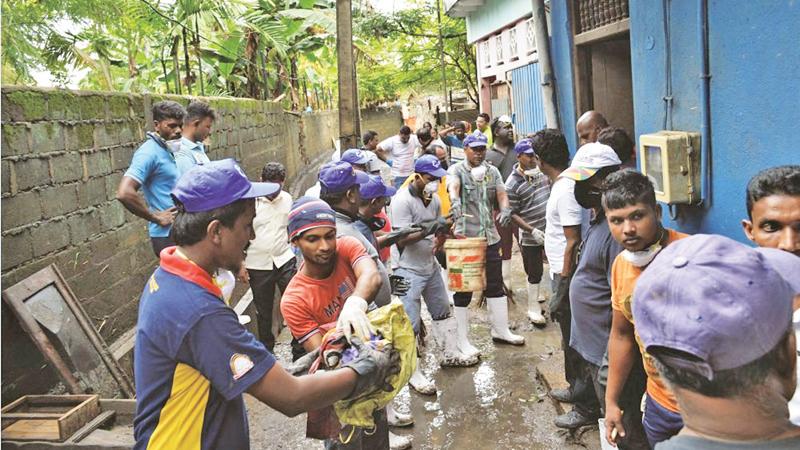
A fundamental aspect of any democratic country is the right of its citizens to participate in the decision-making process. This is known as civic engagement. Technically it means, ‘working to make a difference in the civic life of communities and developing the combination of knowledge, skills, values and motivation to make that difference.’
In simple terms, it means promoting the quality of life in a community, through political and non-political processes. The success of any participatory governance of a country depends on an active civil society with healthy levels of civic engagement.
Why needed
Civic engagement is necessary in a democratic society for many reasons, for example:
- Citizens are the most important factor in governance. However, most governments are inward looking and focus more on administrative regulations (AR) and financial regulations (FR) than on the people.
- Bureaucrats do not like citizens getting involved in work. They argue it can slow down government processes, which is not true. The effectiveness of any public policy depends on the response of citizens. When such responses are known upfront, it could prevent costly mistakes and save the Government time and money in the long term.
- Citizen engagement does not put citizens against administrators. It is about collaboration, not opposition. When citizens are included in public policy processes, they can work together with the administrators as partners to solve major challenges.
- Citizens’ trust in public institutions enables smooth implementation of public policies and service delivery. When this trust is missing, governments face higher costs and complications and citizens seek services outside of public systems.
- Citizen engagement complements democracy and is fundamental to translate priorities set by the political process into concrete actions and delivery.
In developed countries citizen engagement is taking hold as a critical part of participatory policy-making.
Track record
Sri Lanka has a good track record in civic engagement among the South Asian countries. In 2009/10, Sri Lanka with 58 points was ranked eighth in a Gallup poll of civic engagement in 130 countries measuring citizens’ likelihood to volunteer their time and assistance to the government and others. India ranked 48th position. In the 2015/16 poll, Sri Lanka with 57 points became 5th in the list.
Although the poll finds a strong connection between the Civic Engagement Index and per capita GDP, the countries with the most civically engaged populations are not necessarily the richest. Myanmar’s place (1st position) is evidence of that.
While the top-10 list includes wealthy Western countries where residents may be better positioned to give - such as, the US, Australia, New Zealand and Canada - middle-income countries such as Sri Lanka and Indonesia are not far behind.
Residents in middle-income countries at the top of the list are more likely than residents in any Western nation to say they have volunteered their time to the country or to an organization. We can do better if we make a serious commitment and take the necessary initiatives.
Goals of civic education
We need a good civic education for the younger generation. A civic education is a public, socially-oriented system of continuous education aimed at building civic competence, democratic culture and satisfying the need for socialization in the interests of the civil society and the rule of law.
The main goal of civic education would be the formation of civil qualities on the basis of new knowledge, skills and values that help individuals to solve emerging problems and adapt to changing socio-economic and political conditions. It would help citizens to represent and protect their rights and interests, while respecting the interests and rights of others.
The components of civic education should be human rights education, peace, tolerance. development of inter sectoral social partnerships and management of self-governing associations of citizens.
Target group
The groups targeted by civic education are: students, teachers, security forces, state and municipal employees, NGO activists, prisoners and other risk groups; pensioners and older citizens.
Civic education would help young people acquire and learn to use the skills, knowledge, and attitudes that prepare them to be competent and responsible citizens throughout their lives. Competent and responsible citizens are informed and thoughtful, have an appreciation of history and the fundamental processes of democracy. They have an understanding and awareness of public and community issues.
Such education would help them to have moral and civic virtues such as concern for the rights and welfare of others, social responsibility, tolerance and respect, and belief in the capacity to make a difference.
So, the question is - has our prevailing civic education in schools managed to deliver these objectives to the younger generation? There are serous doubts about it. We need to think of new strategies that can capitalize on young people’s idealism and commitment to service and voluntarism. A promising approach to increase young people’s engagement is school-based civic education.
Studies conducted in twenty-four countries by the International Association for the Evaluation of Educational Achievement (IEA), confirm a universal or near-universal commitment to certain goals or themes. There is agreement that civic education should be cross-disciplinary, interactive, related to life, conducted in a non authoritarian environment, cognizant of social diversity, and constructed with parents and the community, including non-governmental organizations.
